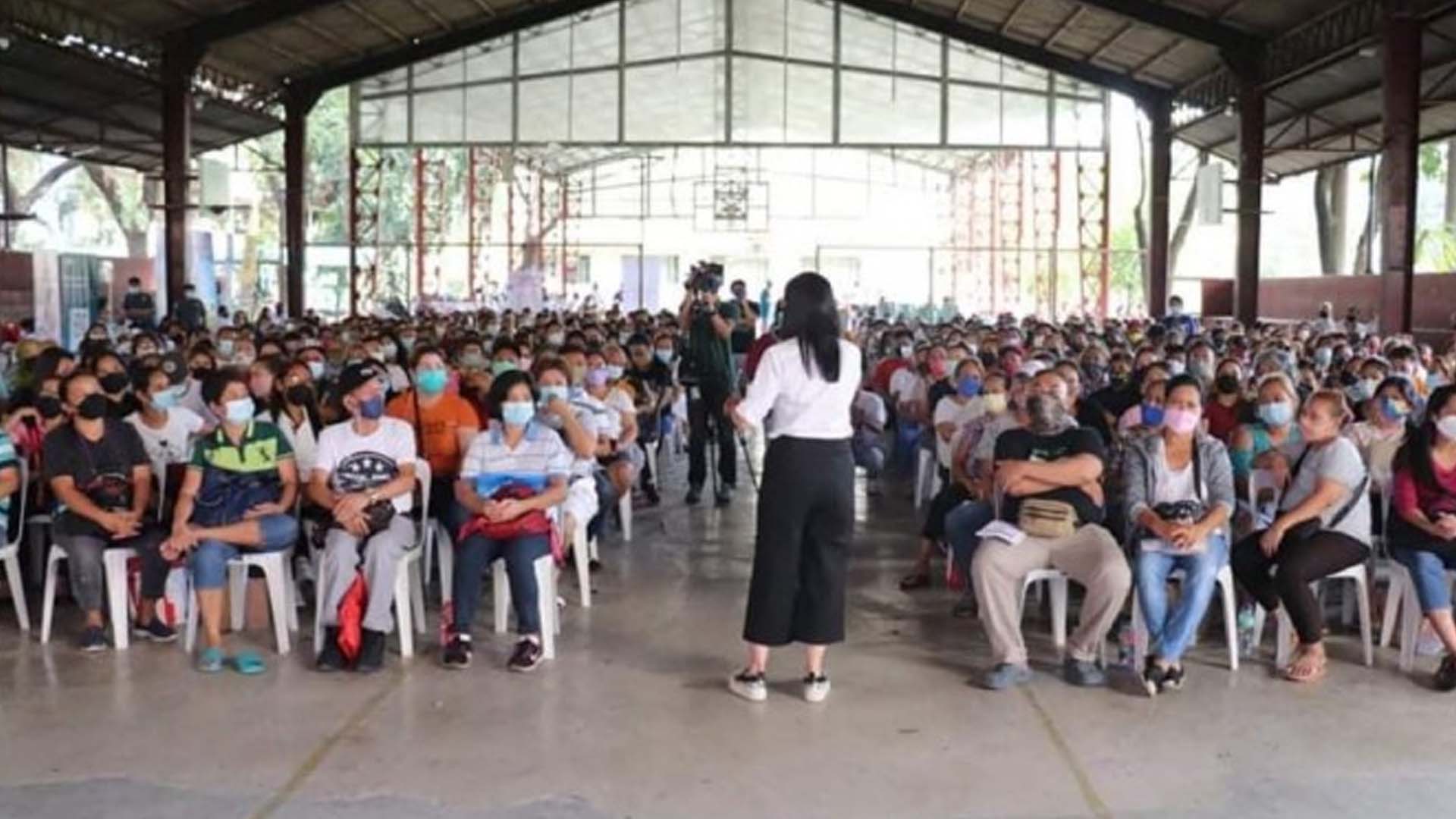A total of 480 additional small-scale entrepreneurs from District 4 of Quezon City received livelihood financial assistance from the city government.
In a Facebook post on Wednesday, the city government said the cash aid for the city’s small businesses is part of the ‘Pangkabuhayang QC Program’ under the QC Small Business and Cooperatives Development Promotions Office (SBCDPO).
The payout for the qualified beneficiaries was held at the Carlos Albert High School in Barangay Santol on Tuesday.
“Ang mga benepisyaryo mula batches 13 at 14 ay nakatanggap ng livelihood assistance mula PHP10,000 hanggang PHP20,000 (The beneficiaries from batches 13 and 14 received an amount ranging between PHP10,000 and PHP20,000),” the city government’s post read.
QC Mayor Joy Belmonte said the city government is aware of the difficulties and hardships experienced by small-scale businesses, especially during the two-year coronavirus disease 2019 (Covid-19) pandemic.
“Bago ang payout, sumasailalim muna ang mga benepisyaryo sa training at management seminar upang madagdagan ang kanilang kaalaman sa pagpapaikot ng kita (Before the payout, the beneficiaries have undergone training and management seminar to arm them with knowledge on how to run their businesses),” she said.
In February alone, the city government has already distributed livelihood assistance to those who belong to batch 11 to 12 consisting of 552 beneficiaries from District 1, 858 from District 6, 494 from District 5, 242 from District 3, and 790 from District 2.
Last month, some 255 approved beneficiaries from District 3, and 937 from District 6 who are all part of batch 9 to 10 also received their cash aid.
Previous batches received their financial assistance from the city government last year.
“Ang Pangkabuhayang QC ay programa ng lungsod para dagdagan ang puhunan ng mga displaced worker, may-ari ng maliit na negosyo, OFWs na nawalan ng trabaho, unemployed solo parents, at PWDs na naapektuhan sa gitna ng pandemya (The QC livelihood program aims to give additional capital for displaced workers, owners of small businesses, OFWs who have lost their jobs, unemployed solo parents, and PWDs who were affected amid the pandemic),” Belmonte said. (PNA)






















